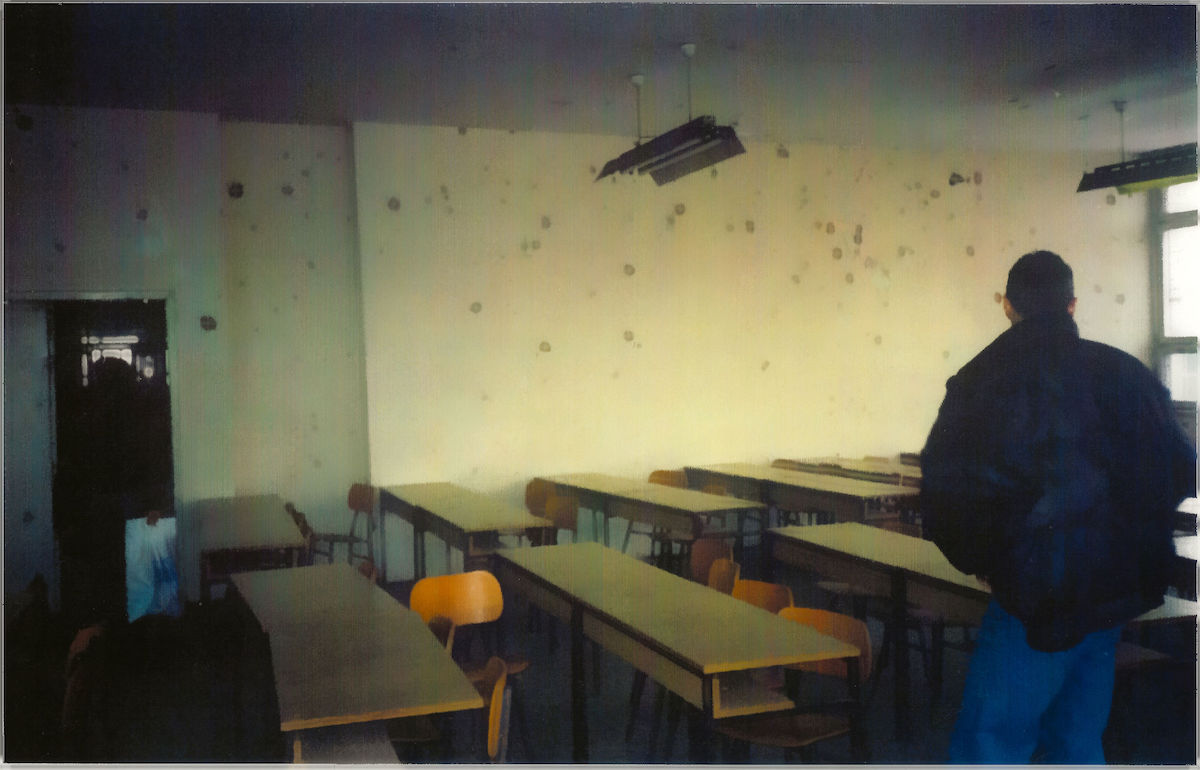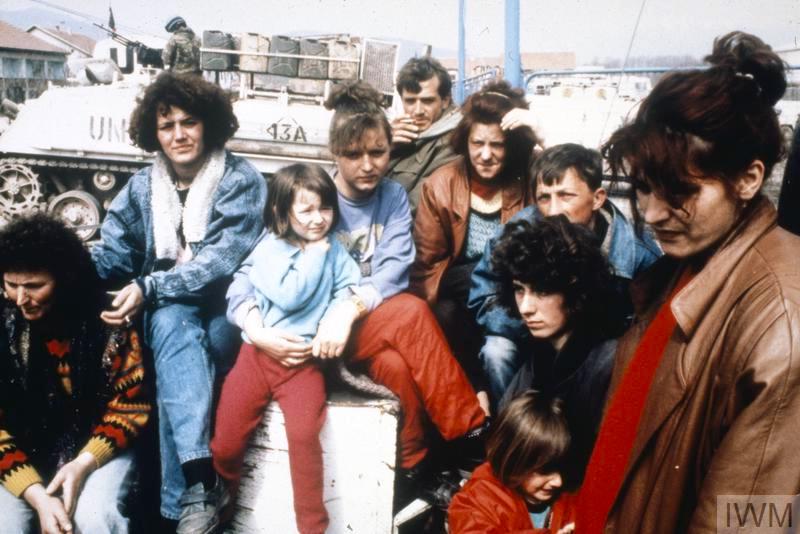An attempt to erase an entire culture and society

Photo courtesy of Ralph & Chris Dull
The centuries-old society which flourished in Bosnia-Hecegovina was based on mutual tolerance to many different ethnicities and a mosaic of religious traditions that co-mingled there — Catholic, Jewish, Muslim, and Orthodox Christian.
When Croatia declared itself independent in 1991 based on the nationalist pride of ethnic Croats, and Serbia claimed the right to inherit the former state of Yugoslavia with a goal of uniting all ethnic Serbs, both those countries saw the existence of Bosnia’s pluralistic society on their borders as a contradiction, and therefore a threat. It had to be not only stopped, but crushed. Step One was “ethnic cleansing.”
We think of war as soldiers fighting soldiers, but ethnic cleansing — a euphemism used during this war for genocide — is an act of war aimed at people just living their everyday lives. Heavy artillery was fired not only on military positions, but on the homes where people were living, away from battlegrounds. Men and teenage boys were rounded up to be executed or held in internment camps. The murder victims were dumped into mass graves and bulldozed with dirt so their families would not find them. In cities, snipers targeted the mourners at funerals just to disrupt this most basic act of reverence within a society.

Bosnian Muslim women and children refugees, possibly from Srebrenica, arrive in Tuzla, March 1993. © IWM (BOS 80)
Women were less often cut down by mass murder. Instead, they were raped. The aim of this was not only to physically harm them, but to destroy a woman’s sense of herself as free and able to choose for herself. A rape survivor bears a social stigma, so it could also destroy her connections to her family and community, thus further breaking apart what binds people together and gives them strength and purpose.
All these violent acts were designed to achieve one end: to destroy the essential foundations of Bosnian society. Then, when it was so weak that it almost no longer existed, the land could be claimed by Croats and/or Serbs with little or no objection from other nations. Despite so much death, this tactic did not succeed.
